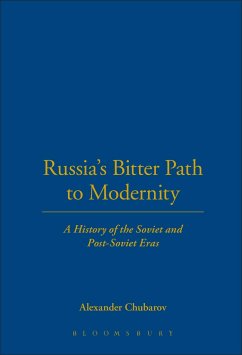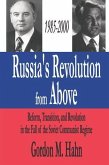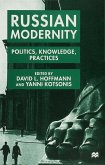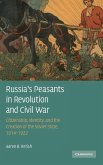Will it follow the model of the Western capitalist democracies, as those who applied the economic shock therapy of the early 90s hoped, or will it chose its own distinct path of development? In this history of Russia from 1917 to the present, Alexander Chubarov teases out certain themes developed in his previous book on tsarist Russia (The Fragile Empire). One of the key factors to Russia's distinctiveness is its halfway location in the center of the Eurasian landmass. This lends an inevitability to the traditional cultural schism between Westernizing reformers and Slavophiles. Neither approach, says Chubarov, will work on its own. Chubarov offers "a balanced view, abstaining from narrow, ideologically biased assessments," and examines the triumphs (yes) and failures of Russia's Soviet development "within Russia's own cultural and historical context." Without ever minimizing the brutalities of the Soviet period-the state terror, the collectivizations, the labor camps, the deportations of whole peoples-Chubarov demonstrates much continuity between tsarist and Soviet Russia, with the latter often repeating the former's mistakes. Russia, says Chubarov, cannot turn its back on its Soviet experience. Far from being a blind alley or "aberrant phase," the Soviet period was an organic part of Russia history and "was largely successful in turning Russia and most of the other Soviet republics into modern states."
Hinweis: Dieser Artikel kann nur an eine deutsche Lieferadresse ausgeliefert werden.
Hinweis: Dieser Artikel kann nur an eine deutsche Lieferadresse ausgeliefert werden.







